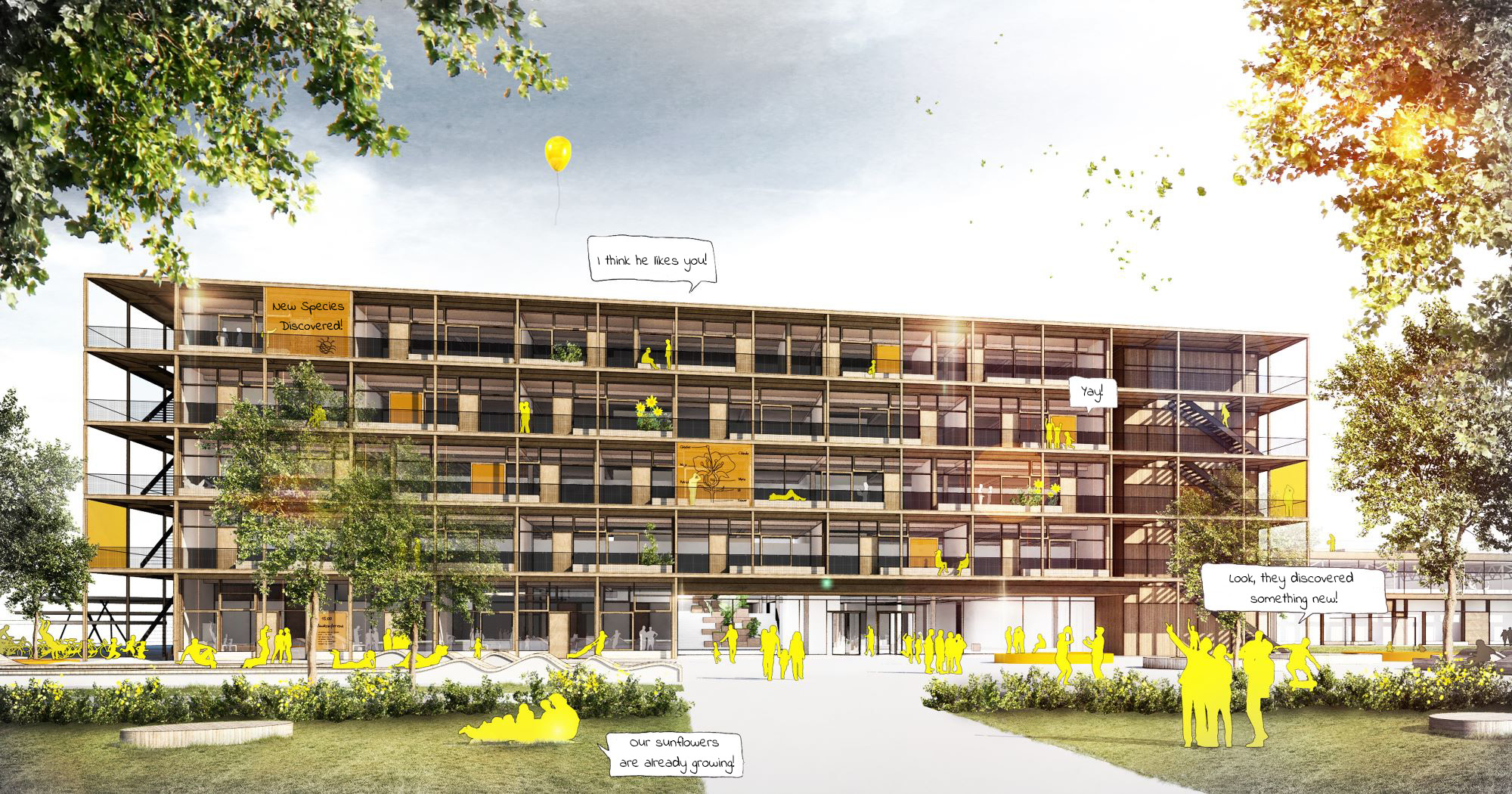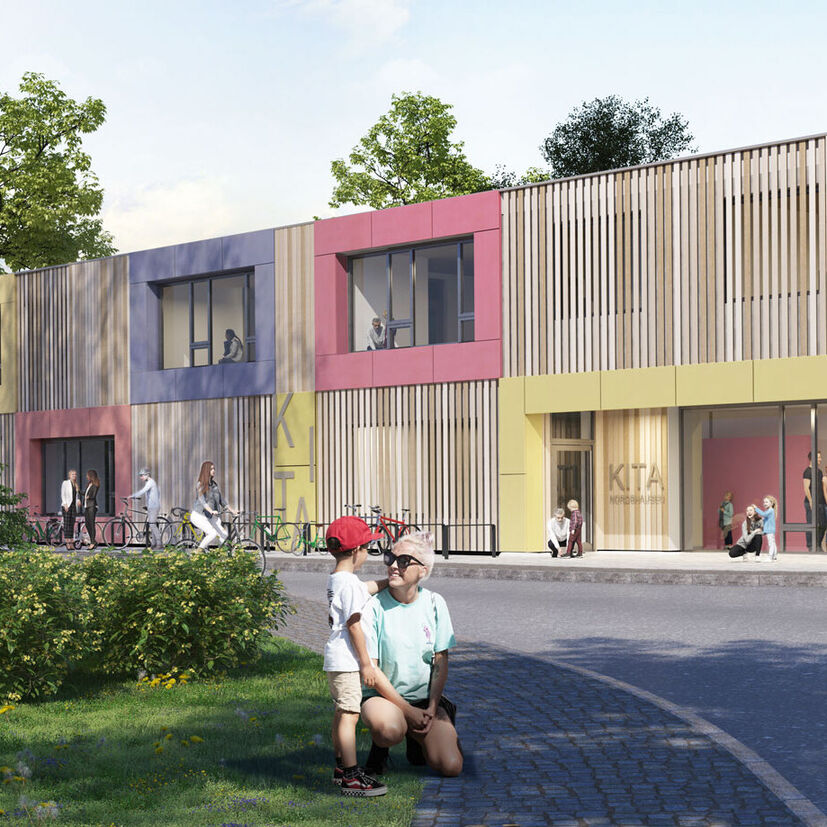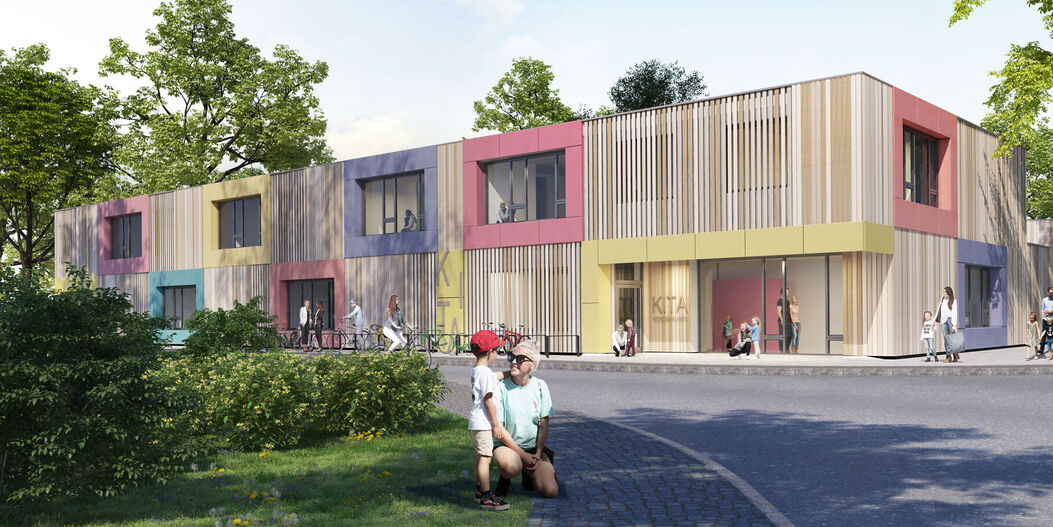Financing of schools and educational infrastructure
Building blocks of education
Helaba and Sparkasse finance new school building in Nuremberg together with WBG Kommunal GmbH
The drawings of the new school are quite impressive: an open building made of wood, a modern dining hall, a huge sports hall with seven courts and green outdoor areas through which a restored stream snakes. The Martin-Behaim-Gymnasium in south-eastern Nuremberg will have everything it needs to become a future-proof location for up to 1,500 pupils and 160 teachers once it is completed in 2026. The nearly zero-energy building will be equipped with such things as a photovoltaic system and geothermal energy units for electricity – and, depending on the season of the year, for heating and air conditioning. Construction planning is also based on sustainability: the companies are using recycled concrete made of materials from the old building.
Helaba and Sparkasse Nürnberg are financing the project. The loan-issuing process functions differently here than it does for larger infrastructure projects or companies. The approximately €175 million is being provided as part of a public–public partnership with WBG Kommunal GmbH, a municipal builder of flats in the city. This type of partnership pays off for everyone involved.
Up to 1500
pupils will learn in Martin-Behaim-Gymnasium after completion of the new building
Investing in the future
Helaba likes to finance projects that are ecologically and socially, as well as financially sustainable – particularly in the education sector.
Special loan protection
“We can provide low interest rates and a long term to the project because of the creditworthiness of a public institution – the city of Nuremberg in this case,” Thomas Ostermann said. Ostermann, Deputy Department Director for Project Financing at Helaba, structured the loan at Helaba. He noted that there was a very good chance that the loan would be repaid – a fact that makes good financing terms possible. The loan would not be written off even if, in an extreme case, the city could no longer make payments. “Municipalities are covered by a wide range of instruments, including the municipal compensation scheme and the financial equalisation scheme among Germany’s states,” Ostermann said.
Thomas Ostermann,
Deputy Department Director for Project Financing
Nevertheless, such a project means a lot of hard work for the project financing team. Such questions as the amounts of the loans, the terms of the loans and the repayment structures have to be addressed. “We also have to take a close look at the individuals involved in the agreements and examine their credentials,” said Markus Greif, who has increasingly been involved in school financing projects inside and outside Germany in recent years. In addition, local political leaders also play a role in municipal contract awarding, including the city council that previously approved the project. “Municipal budget law is complex,” said Greif, the project financier at Helaba. “We examine the administrative documents created during the process and see whether things like maximum thresholds on building costs were approved.” This is a key criterion in times of rapidly rising construction material costs – an 8.8% increase in 2021 and a 16.8% rise in 2022.
Public–private partnerships abroad
Such a project becomes even more involved if it is outside Germany. Helaba also finances schools in Austria, England and Ireland, for instance. The financing structure differs from the approach taken in Germany because public–private partnerships are frequently used in the area of education in particular. This involves close relationships between public-sector customers and private-sector contractors. These contractors not only build the schools, but also maintain ownership of them and operate them by doing such things as offering janitorial services or maintaining the buildings. They receive payments from the municipality for this work. “We work with our international offices in these models as well as with local solicitors to ensure that the project complies with local law,” Greif said.
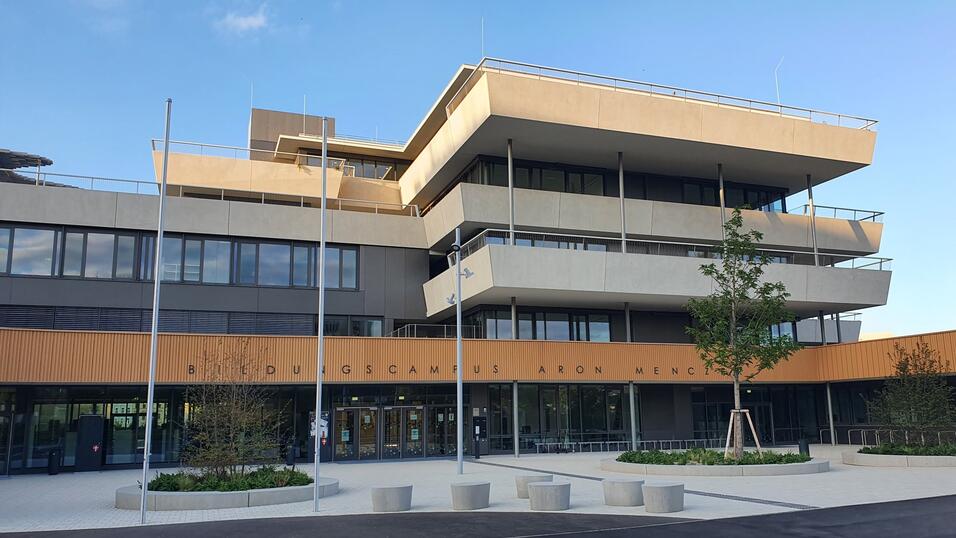
Greif considers a trusting relationship with German municipalities and states to be very important, particularly if many projects are to be carried out with the same customers over the years. He and his colleagues become familiar with the contract structure and can work very efficiently as a result. However, Greif added that the federal system of government used in Germany was creating more and more new nuances for projects. Things are simpler in the Netherlands, where Helaba has already co-financed several public–private partnerships. “The Netherlands has a separate authority for transport infrastructure that builds streets, locks and tunnels, and a different authority for public structural engineering – and they use standard contracts that only have to be modified,” Greif said. This eases the workload and creates more efficiency, he added.
Markus Greif,
Vice President Project Finance
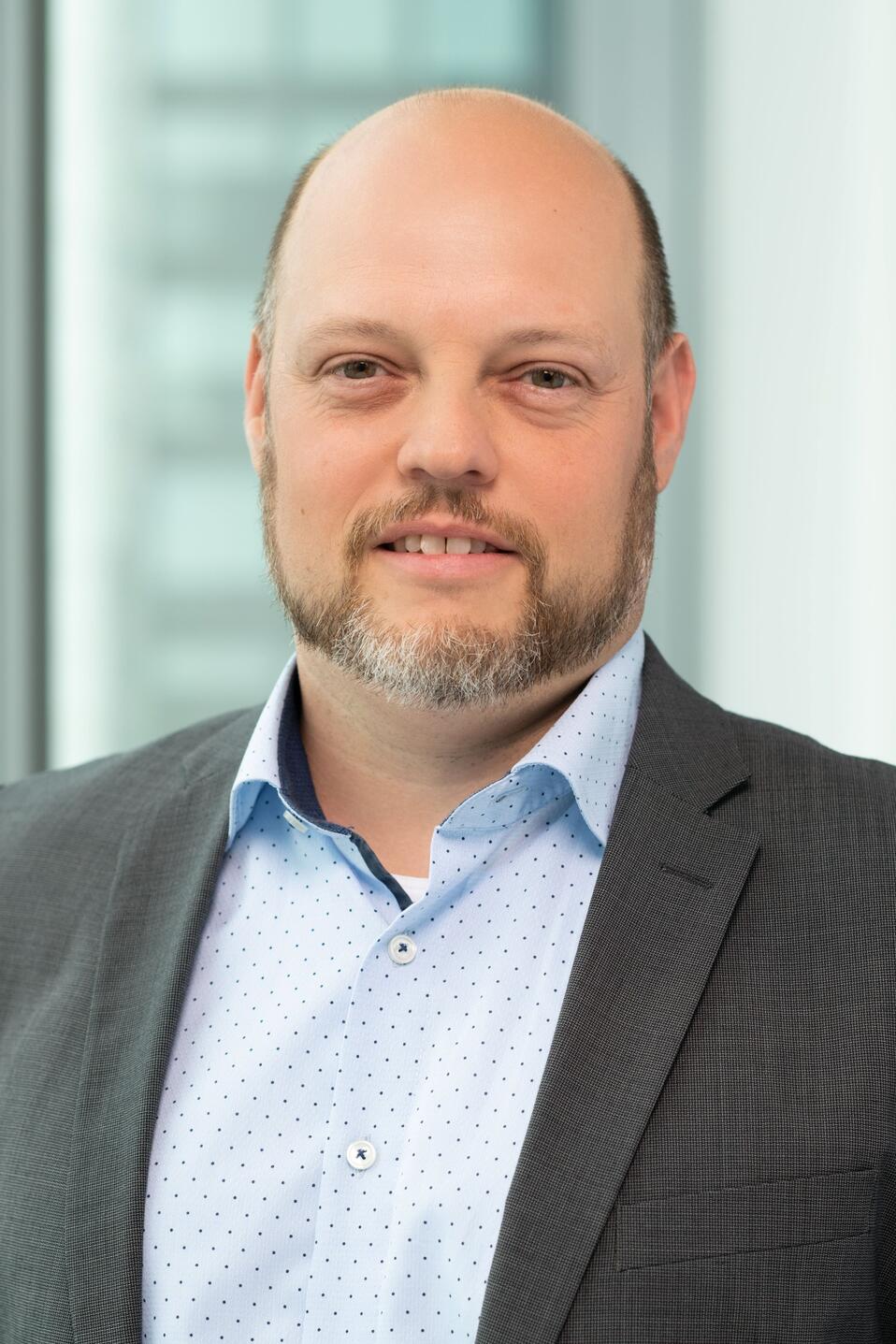
Vice President Project Finance
Sustainable focus
School financing is a key aspect of Helaba’s sustainability-focused business activities. These activities have an environmental as well as a social dimension to them. “Schools are one of our special focal points because they play an important role in social matters,” said Petra Sandner, Chief Sustainability Officer of the Helaba Group. “We regularly review new transactions and financing projects to determine whether they contribute to one of the 17 Sustainable Development Goals of the UN.” One of these goals, Number 4, is quality education, something that functional and modern building help to provide. “Modernising the education infrastructure is something that desperately needs to be done, in all areas,” Sandner said. At the same time, the long-term improvement of educational quality is particularly important in urban areas because it can help to create a stable, future-proof society, she added.
Petra Sandner,
Chief Sustainability Officer of the Helaba Group
The topic of schools also has a special meaning to Markus Greif, a 15-year employee at Helaba who began his career as a banking intern at a savings bank (Sparkasse). “Educational institutions are not abstract in any way. Rather, they are very concrete – and they also carry out an important mission,” Greif said. During business or holiday trips, he likes to drop by projects for which he provided financing when they happen to be nearby. “For instance, I visited the Campus+ model in Vienna, something that I had only seen in animated images and architectural drawings up to then,” he recalled. “I was really impressed when I saw the students and teachers going inside. An agreement on paper has been turned into a real place for education.”
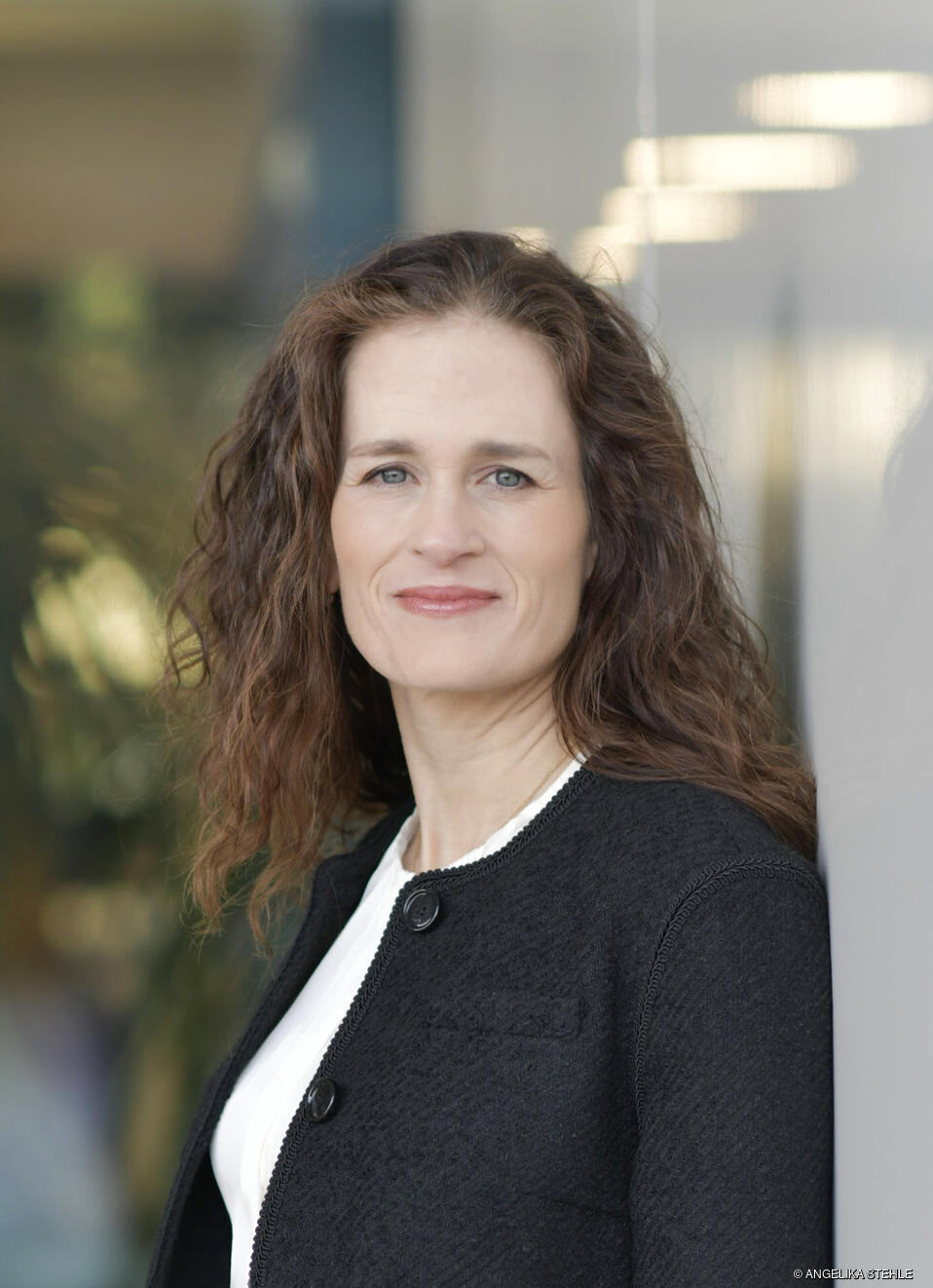
Chief Sustainability Officer of the Helaba Group
Further Stories
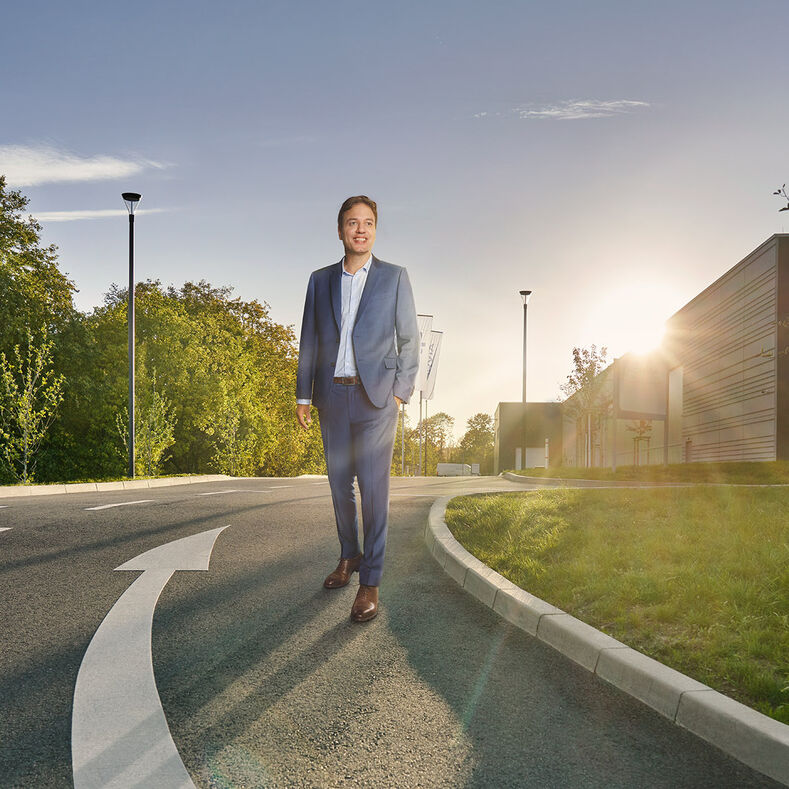 ESG-linked Schuldschein for Faurecia
ESG-linked Schuldschein for FaureciaESG-linked Schuldschein for Faurecia
As part of its ambitious CO2 reduction strategy, Helaba is supporting the automotive and technology company Faurecia with a tailored ESG-linked Schuldschein, which represents a real innovation in the market.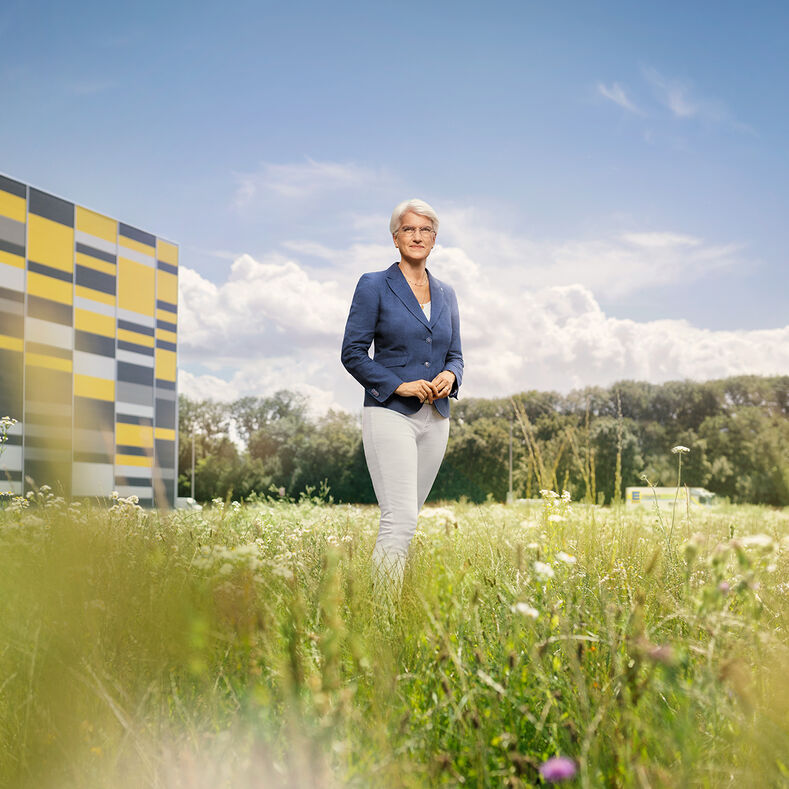 Edeka Südwest
Edeka SüdwestEdeka Südwest
For the German supermarket chain EDEKA Südwest, sustainability is a key tenet of its corporate strategy and is actively embraced in a multitude of ways. Helaba supports this with a sustainability linked loan and a high level of expertise.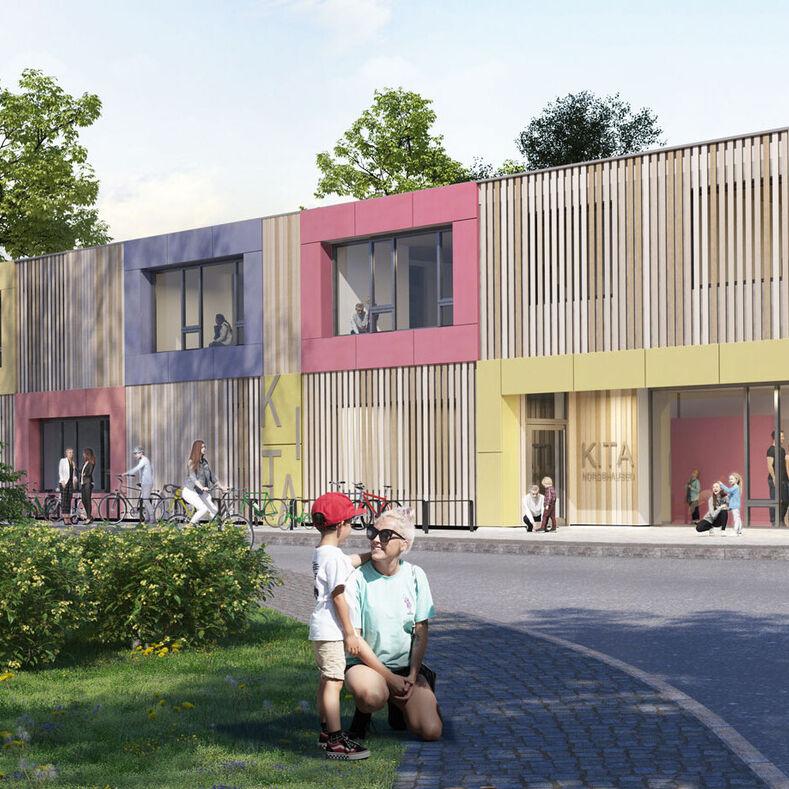 Investing in the future
Investing in the futureInvesting in the future
Helaba sets store by partnerships with private or partially private companies when it comes to financing projects – especially when the latter are implemented sustainably and involve an institution of such significance for the future as a childcare facility. Municipal authorities like the City of Kassel benefit from projects of this nature. Catching the wind
Catching the windCatching the wind
One of the cornerstones of the transformation of the energy system, wind power requires complex financing solutions. Stefan Seibel, Vice-President Renewables Team and qualified industrial engineer, knows the ropes.

